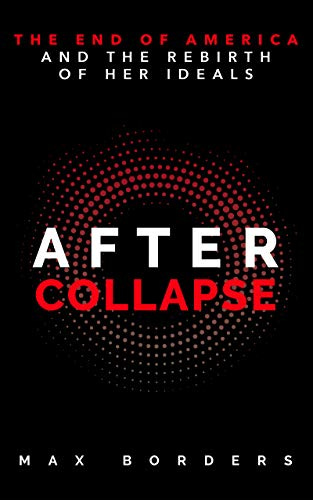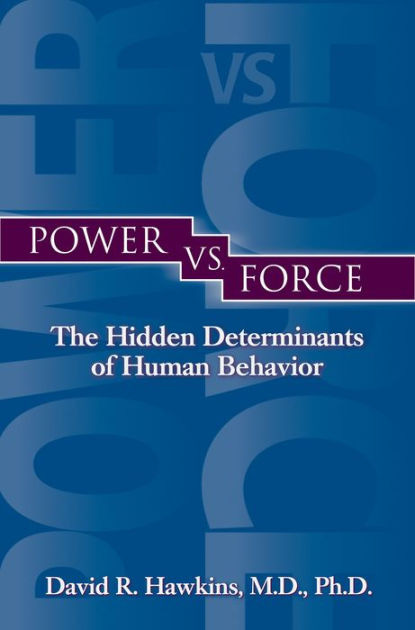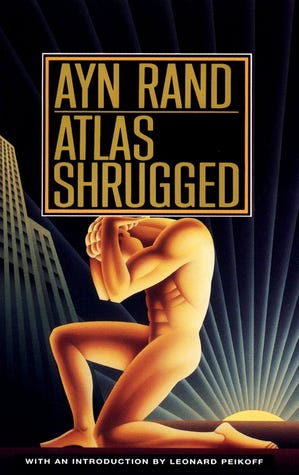humanity feels like it’s collapsing before our very eyes
……3 books I’ve turned to for perspective
Unsplash Photo Credit: David McCann
I believe we are in a dark and pivotal point in humanity’s evolution. In my lifetime, I’ve never seen so many people reeling from the waves of uncertainty.
Here’s what I’m witnessing:
Economic and political structures are crumbling
Crime is rampant with societal chaos evoking fear unlike I’ve ever witnessed
Societal divides and a breakdown in mores are fueling rampant crime, widespread gun violence, distrust, and a lack of basic respect for our fellow humans
The political world order is collapsing before our very eyes and is primed for a seismic and highly disruptive shift in the next 12-18 months
Our lives are overwrought with personal identity confusion and a lack of ethics.
Marriage and relationship structures are crumbling with many resorting to isolation and self-survival
Growing number of people at all levels are in a precarious financial state
Mental and physical health issues are rampant; people are working unsustainable hours just to survive.
Community and close knit bonds are becoming increasingly hard to find
Our structural economic and financial systems are in meltdown
Technology is exacting a major toll on job markets as well as mental and emotional well-being
My eyes are definitely wide open amid these uncertain times. How about for you?
Below are among the many books I’m currently reading with rapt attention to gain some perspective regarding the times we’re in.
“After Collapse: The End of America and the Rebirth of Her Ideas” by Max Borders
In this book, Max Borders shows us how American society is breaking down amid the following developments that are in play:
Our socio-economic models are faulty.
Our hierarchies are strained.
Our belief in the founding ideals is fading.
Our systems of mutual aid are dying
Our collective intelligence is fractured.
Our civil discourse is deteriorating.
Our government is in debt and disorder.
With a Taoistic flair, Borders asserts that when the masculine coercion paradigm and the feminine persuasion paradigm get out of whack, collapse looms.
With his prediction of America’s fall, Borders delivers an eye opening vision for a new societal framework. Drawing from the world’s wisdom traditions to offer a bold vision and reimagining of America’s Founding, Borders calls on us all to turn inward, become better global citizens, and to criticize by creating.
“Power vs Force” by Dr. David Hawkins
"Power vs. Force" by David R. Hawkins explores the idea of human consciousness and its impact on personal and collective well-being. The book introduces the "Map of Consciousness," which categorizes human emotions and thoughts into different levels.
At the core of the book is the distinction between power, which is associated with higher levels of consciousness, and force, which is linked to lower levels. Power, he says, is more influential and transformative, while force is coercive and often counterproductive.
In these uncertain economic and political times, the book's significance lies in its insights into the role of consciousness in shaping our individual and societal experiences. He suggests that as individuals and societies operate from higher levels of consciousness, they can resolve conflicts more effectively and make wiser decisions. By understanding these concepts, individuals and leaders can navigate challenges with greater clarity and compassion.
Hawkins' work embraces a shift towards power, which promotes cooperation, understanding, and constructive change, rather than relying on force, which can exacerbate tensions and conflicts. This perspective can be valuable in addressing the complex issues and uncertainties present in economic and political landscapes.
Rand’s magnum opus is a philosophical and political novel that depicts a dystopian society in which the government's intervention in the economy and individual lives has led to economic decline and social stagnation. The story revolves around the struggles of innovative industrialists and entrepreneurs who decide to "go on strike" and withdraw their talents and contributions from a society that no longer values individualism, creativity, and free-market principles.
The book's significance for uncertain economic and political times lies in its advocacy for individualism, capitalism, and limited government intervention.
Rand's objectivist philosophy, as depicted in the novel, champions the idea that individuals should be free to pursue their self-interest and creativity, which, in turn, benefits society as a whole. It serves as a critique of collectivism and excessive government control.
In times of economic and political uncertainty, "Atlas Shrugged" has been a source of inspiration for those who advocate for limited government regulation and a free-market approach.
It challenges the role of government in economic affairs and underscores the importance of individual rights and freedoms. While the book has its share of critics, it continues to spark debates and discussions about the balance between individual liberty and government intervention in contemporary society.
With that, I am equally curious as to what books are on your nightstand these days. Please share with us what you’re reading in your quest to better understand the massive upheaval that is occurring in the world around us.









I love this essay. It is Right On! I will want to stay informed of this thread of thought and writing.